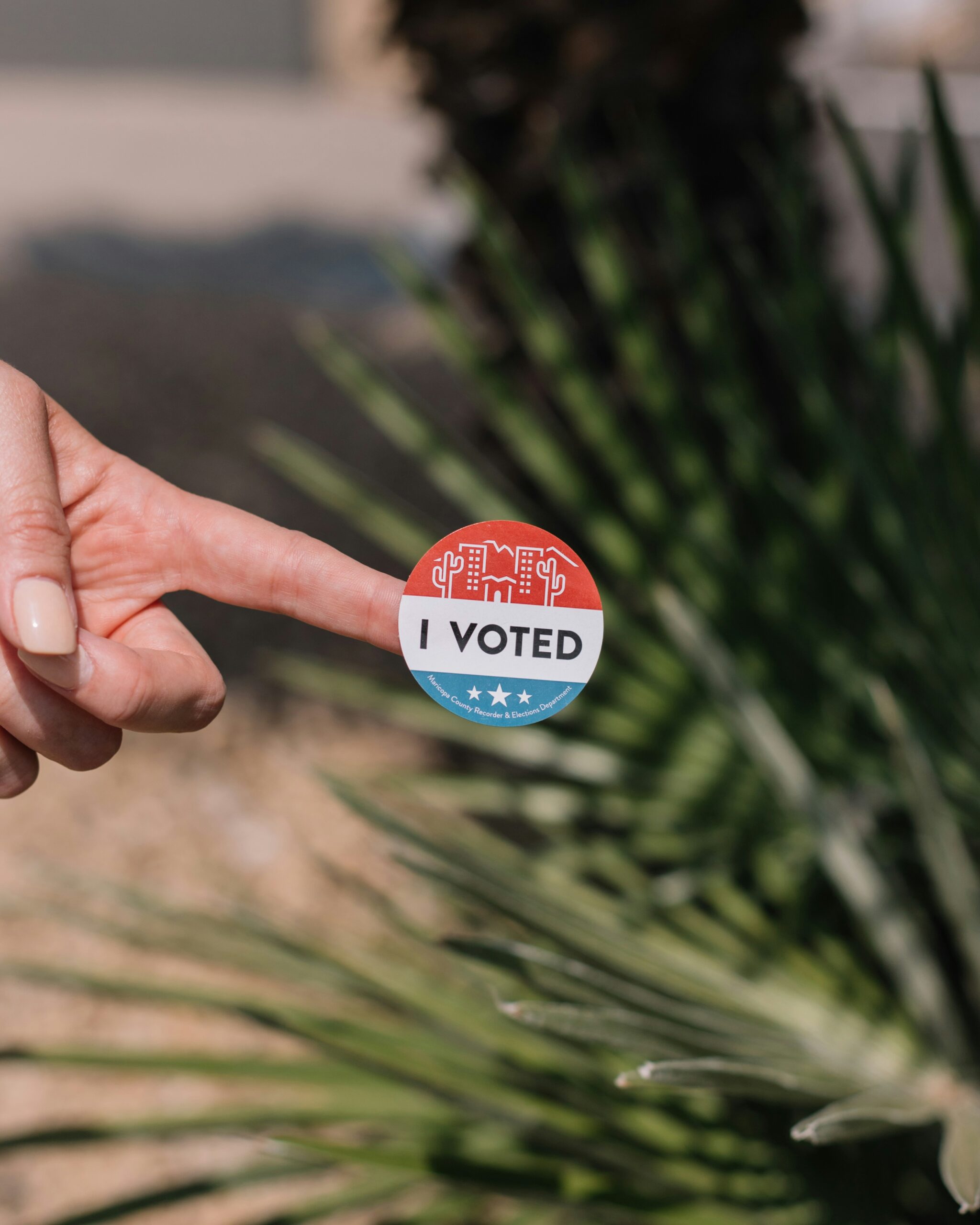A Modern Etiquette Expert’s Guide to the Election — 5 Insider Tips for Keeping The Peace
Poise Amid Political Polarization
BY Heather Wiese // 09.25.24
Modern etiquette expert Heather Wiese walks us through a list of trusted tips you can rely on. Today’s topic: election etiquette.
In her recurring column, “Social in Security,” modern etiquette ambassador and Bell’INVITO founder Heather Wiese walks us through a list of trusted tips you can rely on. Today’s topic: election etiquette.
There is hope. To start, I vow not to tell you how to vote or how to feel. Election etiquette serves to protect relationships with one best practice and four navigation strategies for when you find yourself amid a political conversation minefield. Last, to wrap it up, this is a list of passé talk that’s so 2020 and the tips you need to walk away with a plan of polished election-era acuity.
While the basic election etiquette touted commonly is to “avoid discussing politics and religion,” the likelihood that you can be social and avoid the landmines in the social landscape is slim.
If you only remember one point, recall this one. Brush up your EQ, especially now. Point-proving runs rampant in political discussions. There is a tendency to talk over, interrupt, ramble on, and rant. First, focus on your own listening skills and some self-control. If you can’t reign these habits in, the rest of this, my dear friend, is moot.

Best Practice: Don’t Be the One
Bring a healthy handful of conversation topics to the party. Try travel, pets, hobbies, books, films, streaming series, literally anything but “Did you watch the debate?” It’s not just about avoiding the ask of where someone stands. In this state of play, it is best to avoid political discussions at parties and gatherings, even when all the faces feel familiar.
It’s Out There. Now What?
Try this quote from Oscar Wilde, “I dislike arguments of any kind. They are always vulgar and often convincing.” A little humor can buffer oncoming blows. Gracefully steer the conversation to less contentious topics. If you can, nip this social scandal in the bud. You might say, “As much as I was hoping we’d discuss politics, I’d really love to know {insert literally anything else} …how your trip to Costa Rica was last month…how your trip to Costco went for toilet paper. Try comedy and a light tone to turn the tide.
Retreat or Divert?
Consider the setting: Is this a time when you’re prepared to have a thoughtful conversation? Are you ready and able to use top-notch listening skills? Are you with a person who is capable of a discussion or set on a ploy for conversion? Are others in the room equally interested in this topic and capable of maintaining decorum? If the stars are only almost aligned to take on the conversation, say, “I’d love to hear your thoughts when we can dedicate more time.” Be aware of others and refrain from taking conversation hostages.
Engage Using the Power of Empathy
Political discussions become heated when we fail to recognize the humanity behind the opposing viewpoint. The tendency to generalize and demonize the “other side” is strong in today’s hyper-partisan environment. A bifurcated flow of information doesn’t help. You will not entice, convince, or convert anyone with talk that is perceived as angry or hateful — even if it’s backed by your well-researched data. Inevitably, your well-worded arguments sound like misinformed, hateful rhetoric in the ears of your opposition. It’s not you; it’s the system. Or it might be both. But you get my point.
Approach conversations with empathy and self-regulation. Pause to listen to the concerns behind opposing opinions. Ask questions designed to help you understand rather than U-turn back to prove your point. Show curiosity. Resist the urge to immediately rebut. You’ll find that people are more willing to engage when they feel heard. Equally valuable is the realization that tone is very important. Be ready to end with sportsmanship-like conduct in an agreement to disagree. A sincere, kind word at the end of a disagreement goes a long way and demonstrates a level of character and poise that is not only admirable but deeply appreciated.

The List of Things to Leave Behind:
Binary Thinking
Grow out of the idea that everything is black or white, right or wrong, good or evil. Human beings and their political opinions are far more nuanced.
Asking “Who?”
Stop asking which candidate will get someone’s vote. Instead, be supportive and ask if they know where to go to vote or if they need help finding their voting location.
Empty Threats
If your candidate loses, are you really denouncing your citizenship? We all have an opportunity to step up and make efforts to change government on many different levels. By now, if you haven’t already left, it appears that you are just throwing a tantrum.
Social Media Squabbles
Just stop. It is utterly ridiculous to argue on social media.
Bring Your Best: Before and at the Ballot Box
Register
There are some things to know if you don’t already. First, you need to register to vote. If you’re not sure if you are registered, check here. This will also tell you where you can go to vote.
Plan Ahead
If you need to leave work or have responsibilities covered in order to vote, make your plans at least two weeks ahead of time or per your organization’s rules.
Know the Code
Within 100 feet of the voting stations, “electioneering,” which is wearing gear promoting or denouncing any candidate, is illegal. If you need to see more laws, click here.
Silence Your Phone
Cell phones are not allowed within 100 feet of the voting stations. That means no whipping them out for ballot box selfies as well.
Research the Facts
Research facts from unbiased sources. Come informed, decisive, and ready to cast your votes.
Move Along
If you have a question, ask quickly. Don’t feel rushed, but don’t linger inconsiderately, either.
To wrap it up, my friends, in an age of polarization, the ability to navigate political conversations with grace and sophistication is a rare skill. As we approach the upcoming presidential election, be the beautiful, wise, well-meaning person who brings your bright light into a dark space. If enough of us rise to the challenge, we can right this ship. It’s in our hands.






_md.jpeg)




